This article contains too many or too-lengthy quotations for an encyclopedic entry. (February 2016) |
 | |
| Abbreviation | RSS |
|---|---|
| Formation | 27 September 1925 |
| Founder | Keshav Baliram Hedgewar |
| Type | Right-wing, volunteer, paramilitary |
| Legal status | Active |
| Purpose | Hindu nationalism and Hindutva |
| Headquarters | Nagpur, Maharashtra, India |
| Coordinates | 21°08?46?N 79°06?40?E? / ?21.146°N 79.111°ECoordinates: 21°08?46?N 79°06?40?E? / ?21.146°N 79.111°E |
Area served | India |
Membership |
5-6 million 56,859 shakhas (2016) |
Chief | Mohan Bhagwat |
Key people |
Suresh 'Bhaiyaji' Joshi (general secretary) |
| Affiliations | Sangh Parivar |
| Website |
rss |
Rashtriya Swayamsevak Sangh, abbreviated as RSS (R???r?ya Svayams?vaka Sa?gha, IPA: , lit. "National Volunteer Organisation" or "National Patriotic Organisation"), is an Indian right-wing, Hindu nationalist, paramilitary volunteer organisation that is widely regarded as the parent organisation of the ruling party of India, the Bharatiya Janata Party. The RSS is one of the principal organizations of the Sangh Parivar group. Founded on 27 September 1925, it claimed a commitment to selfless service to India. The organisation is the world's largest voluntary missionary organization.
The initial impetus was to provide character training through Hindu discipline and to unite the Hindu community to form a Hindu Rashtra (Hindu nation). The organisation promotes the ideals of upholding Indian culture and the values of a civil society and propagates the ideology of Hindutva, to "strengthen" the majority Hindu community. It drew initial inspiration from European right-wing groups during World War II. Gradually, RSS grew into a prominent Hindu nationalist umbrella organisation, spawning several affiliated organisations that established numerous schools, charities, and clubs to spread its ideological beliefs.
The RSS was banned once during British rule, and then thrice by the post-independence Indian government – first in 1948 when a former RSS member assassinated Mahatma Gandhi; then during the emergency (1975–77); and for a third time after the demolition of Babri Masjid in 1992.
Contents
Founding
RSS was founded in 1925 by Keshav Baliram Hedgewar, a doctor in the city of Nagpur, British India.
Hedgewar was a political protege of B. S. Moonje, a Tilakite Congressman, Hindu Mahasabha politician and social activist from Nagpur. Moonje had sent Hedgewar to Calcutta to pursue his medical studies and to learn terrorist techniques from the Bengali secret societies. Hedgewar became a member of the Anushilan Samiti, an anti-British revolutionary group, getting into its inner circle. The secretive methods of these societies were eventually used by him in organising the RSS.
After returning to Nagpur, Hedgewar organized anti-British activities through the Kranti Dal (Party of Revolution) and participated in Tilak's Home Rule campaign in 1918. According to the official RSS history, he came to realize that revolutionary activities alone were not enough to overthrow the British. After reading V. D. Savarkar's Hindutva, published in Nagpur in 1923, and meeting Savarkar in the Ratnagiri prison in 1925, Hedgewar was extremely influenced by him, and he founded the RSS with the objective of strengthening the Hindu society.
Hedgewar believed that a handful of British were able to rule over the vast country of India because Hindus were disunited, lacked valour (pararkram) and lacked a civic character. He recruited energetic Hindu youth with revolutionary fervour, gave them a uniform of a black forage cap, khaki shirt (later white shirt) and khaki shorts—emulating the British police—and taught them paramilitary techniques with lathi (bamboo staff), sword, javelin and dagger. Hindu ceremonies and rituals played a large role in the organisation, not so much for religious observance, but to provide awareness of India's glorious past and to bind the members in a religious communion. Hedgewar also held weekly sessions of what he called baudhik (idealogical education), consisting of simple questions to the novices concerning the Hindu nation and its history and heroes, especially Shivaji. The saffron flag of Shivaji, the Bhagwa Dhwaj, was used as the emblem for the new organisation. Its public tasks involved protecting Hindu pilgrims at festivals and confronting Muslim resistance against Hindu processions near mosques.
Two years into the life of the organisation, in 1927, Hedgewar organised an "Officers' Training Camp" with the objective of forming a corps of key workers, whom he called pracharaks. He asked the volunteers to become sadhus first, renouncing professional and family lives and dedicating themselves to the cause of the RSS. According to scholar Christophe Jaffrelot, Hedgewar embraced this doctrine after it had been reinterpreted by nationalists such as Aurobindo. The tradition of renunciation gave the RSS the character of a `Hindu sect'. Development of the shakha network of the RSS was the main preoccupation for Hedgewar throughout his career as the RSS chief. The first pracharaks were responsible for establishing as many shakhas as possible, first in Nagpur, then across Maharashtra and eventually in the rest of India. P. B. Dani was sent to establish a shakha at the Benaras Hindu University and other Universities were similarly targeted to recruit new followers among the student population. Three pracharaks went to Punjab: Appaji Joshi to Sialkot, Moreshwar Munje to the DAV College in Rawalpindi and Raja Bhau Paturkar to the DAV College in Lahore. In 1940, Madhavrao Muley was appointed as the prant pracharak (regional missionary) in Lahore.
Motivations
Scholars differ on Hedgewar's motivations for forming the RSS, especially because he never involved the RSS in fighting the British rule. Jaffrelot says that the RSS was intended to propagate the ideology of Hindutva and to provide "new physical strength" to the majority community. An alternative interpretation is that he formed it to fight the Indian Muslims.
Tilakite ideology
After Tilak's demise in 1920, like other followers of Tilak in Nagpur, Hedgewar was opposed to some of the programmes adopted by Gandhi. Gandhi's stance on the Khilafat issue was a cause for concern to Hedgewar, and so was the fact that the 'cow protection' was not on the Congress agenda. This led Hedgewar, along with other Tilakities, to part ways with Gandhi. In 1921, Hedgewar delivered a series of lectures in Maharashtra with slogans such as "Freedom within a year" and "boycott". He deliberately broke the law, for which he was imprisoned for a year. After being released in 1922, Hedgewar was distressed at the lack of organisation among the Congress volunteers for the independence struggle. Without proper mobilisation and organisation, he felt that the patriotic youth of the country could never get independence for the country. Subsequently, he felt the need to create an independent organisation that was based on the country’s traditions and history.
Hindu-Muslim relations
The decade of 1920's witnessed a significant deterioration in the relations between Hindus and Muslims. The Muslim masses were mobilised by the Khilafat movement, demanding the reinstatement of the Caliphate in Turkey, and Gandhi made an alliance with it for conducting his own Non-cooperation movement. Gandhi aimed to create Hindu-Muslim unity in forming the alliance. However, the alliance saw a "common enemy", not a "common enmity". When Gandhi called off the Non-cooperation movement due to outbreaks of violence, Muslims disagreed with his strategy. Once the movements failed, the mobilised Muslims turned their anger towards Hindus. The first major incident of religious violence was the Moplah rebellion in August 1921, which ended in a large-scale violence against Hindus and their displacement in Malabar. A cycle of inter-communal violence throughout India followed for several years. In 1923, there were riots in Nagpur, called "Muslim riots" by Hedgewar, where Hindus were felt to be "totally disorganized and panicky." These incidents made a major impression on Hedgewar and convinced him of the need to organize the Hindu society.
After acquiring about 100 swayamsevaks (volunteers) to the RSS in 1927, Hedgewar took the issue to the Muslim domain. He led the Hindu religious procession for Ganesha, beating the drums in defiance of the usual practice not to pass in front of a mosque with music. On the day of Lakshmi Puja on 4 September, Muslims are said to have retaliated. When the Hindu procession reached a mosque in the Mahal area of Nagpur, Muslims blocked it. Later in the afternoon, they attacked the Hindu residences in the Mahal area. It is said that the RSS cadres were prepared for the attack and beat the Muslim rioters back. Riots continued for 3 days and the army had to be called in to quell the violence. RSS organized the Hindu resistance and protected the Hindu households while the Muslim households had to leave Nagpur en masse for safety. Basu et al. note the accounts of "Muslim aggressiveness" and the "Hindu self-defence" in the RSS descriptions of the incident. The above incident vastly enhanced the prestige of the RSS and enabled its subsequent expansion.
Watch movie Prarthana online on Amazon
Watch movie Prarthana online
Watch The Movie On PrimeRaja (1975) Full HD Movie Download
.jpg)
Siva Full HD Movie Download

Bhediyon Ke Samooh Full HD Movie Download

Narad Muni Full HD Movie Download
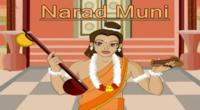
Swarg Full HD Movie Download
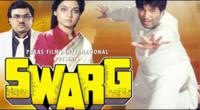
Karz Chukana Hai Full HD Movie Download
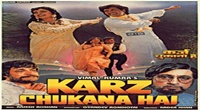
Shirdi Sai Baba Full HD Movie Download
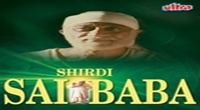
Anarkali (1953) Full HD Movie Download
.jpg)
Aandhi Toofan (1985) Full HD Movie Download
.jpg)
7 Khoon Maaf Full HD Movie Download

Thaaram Full HD Movie Download
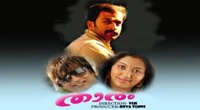
Krishnan Marriage Story Full HD Movie Download

Dholi Taro Dhol Vaage Full HD Movie Download
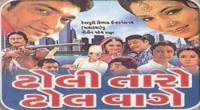
Chandra Mukhi Full HD Movie Download
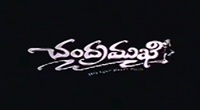
Indra Dhanush Full HD Movie Download
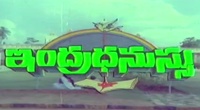
Aval Sumangalithan Full HD Movie Download
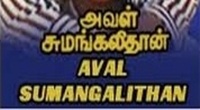
Velaikkaran Full HD Movie Download
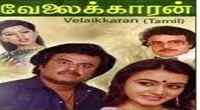
Harry Potter and the Half-Blood Prince Full HD Movie Download

Tenali Raman Full HD Movie Download
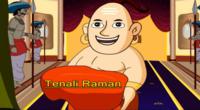
Adiverukal Full HD Movie Download

Aurangzeb (2013) Full HD Movie Download
.jpg)
Download latest Movie from bollywood
- 1> baaghi 3
- 2> THE SKY IS PINK MOVIE FULL STORY AND REVIEW
- 3> Luka Chuppi
- 4> TO ALL THE BOYS I’VE LOVED BEFORE
- 5> Kabir Singh
- 6> Street Dancer 3D
- 7> Simmba
- 8> Gone Girl
- 9> The Girl Who Lived
- 10> Ludo
- 11> DILWALE DULHANIA LE JAYENGE
- 12> GUILTY
- 13> The Godfather
- 14> Adventures of Rusty
- 15> Sooryavanshi
- 16> Satyameva Jayate 2
- 17> Thappad
- 18> Bhool Bhulaiyaa 2
- 19> KGFChapter 2
- 20> Mardaani 2
- 21> Pinjar
- 22> Shivaji maharaj
- 23> Ek Villian 2
- 24> Hungama 2
- 25> Divergent
- 26> Mumbai Saga
- 27> The Internship
- 28> HIT (telugu)
- 29> Panga
- 30> The perfect date
- 31> 16 December
- 32> Gopala Gopala (Telugu)
- 33> Brahmastra
- 34> Gangubai Kathiawadi
- 35> Manmadhudu
- 36> Nenu local
- 37> Mahanati
- 38> Shatamanam bavathi
- 39> Lagaan
- 40> After
- 41> MOM
- 42> Shamshera
- 43> Raguvaran BTech
- 44> Khakee
- 45> The villain
- 46> OM
- 47> Mr. perfect
- 48> Bueatifull mind
- 49> Hichki
- 50> Gabbar Singh
- 51> Jogi
- 52> Before Sunrise
- 53> Before Sunset
- 54> Before Midnight
- 55> The Big Bull
- 56> Top Gun: Maverick
- 57> The Purge
- 58> The Sky is Pink
- 59> Laxmmi Bomb
- 60> Sadak 2
- 61> Sufna
- 62> Prithviraj
- 63> PK
- 64> Coolie No 1(2020)
- 65> Black Widow
- 66> Dear Zindagi
- 67> Dil Bechara
- 68> PHIR HERA PHERI
- 69> WAR
- 70> Dostana
- 71> RRR: Roudram Ranam Rudhiram
- 72> Maidan
- 73> Dabbang 3
- 74> Chhalaang
- 75> life as we know it
- 76> SherShaah
- 77> Sandeep Aur Pinky Faraar
- 78> Event Horizon
- 79> 83
- 80> Radhe: Your Most Wanted Bhai
- 81> Gunjan Saxena: The Kargil Girl
- 82> Mr India
- 83> Vivah
- 84> Anokha Bandhan
- 85> Ghost
- 86> Bhoot: Part One - The Haunted Ship
- 87> Haseen Dilruba
- 88> Laal Singh Chaddha
- 89> Qismat
- 90> Rajput
- 91> Drive
- 92> Dil Chahta Hai
- 93> Dil Ki Baazi
- 94> Dil Ka Rishta
- 95> Teesri Manzil
- 96> Dil
- 97> Love Aaj Kal
- 98> Khaali Peeli
- 99> Bunty Aur Babli 2
- 100> Atrangi Re
- 101> Gulabo Sitabo
- 102> Jodi
- 103> Suraj Pe Mangal Bhari
- 104> Deewana
- 105> Attack
- 106> Sardar Udham Singh
- 107> Toofan
- 108> THE LOVEBIRDS
- 109> Jersey
- 110> Ginny Weds Sunny
- 111> Thalaivi
- 112> Shiddat
- 113> Angels vs Zombies
- 114> Koi Mil Gya
- 115> Thank God
- 116> Bhuj: The Pride of India
- 117> Hum Aapke Hain Kaun
- 118> The Platform
- 119> Bird Box
- 120> Roohi Afzana
- 121> Torbaaz
- 122> Nikamma
- 123> World War Z
- 124> Extraction
- 125> Train to Busan
- 126> Life of Pi
- 127> SHAADI MEIN JROOR AANA
- 128> Himmat Aur Mehnat
- 129> To All The Boys: P.S. I Still Love You
- 130> Mimi
- 131> Good Newwz
- 132> Shubh Mangal Zyada Saavdhan
- 133> Raabta
- 134> Harry Potter and the Philosopher's Stone
- 135> Harry Potter and the Chamber of Secrets
- 136> Chhapaak
- 137> War of the Worlds
- 138> Harry Potter and the Prisoner of Azkaban
- 139> Harry Potter and the Goblet of Fire
- 140> MURDER MYSTERY
- 141> Shakuntala Devi
- 142> Bachchan Pandey
- 143> Jayeshbhai Jordar
- 144> Sheer Qorma
- 145> Saina
- 146> 'O' Pushpa I hate tears
- 147> Kedarnath
- 148> MS Dhoni The Untold Story
- 149> Chhichhore
- 150> Badhaai Ho
- 151> Unstoppable
- 152> Oz the Great And Powerful
- 153> The Girl on the Train
- 154> Haathi Mere Saathi 2020
- 155> The Conjuring: The Devil Made Me Do It
- 156> Gandhi Se Pehle Gandhi
- 157> The Song of Scorpions
- 158> Srimanthudu
- 159> Hello Guru Prema Kosame
- 160> Beauty and The Beast
- 161> Black Panther
- 162> Charlie and the Chocolate Factory
- 163> Bole Chudiyan
- 164> Fidaa
- 165> Duvvada Jagannadham
- 166> Bruce Lee: The Fighter
- 167> Hyper
- 168> Yaara
- 169> Red (2020)
- 170> Shivam
- 171> That Is Mahalakshmi
- 172> Nishabdham
- 173> Aashram 2020 web series
- 174> Laxmii
- 175> Mismatched
- 176> STUDENT OF THE YEAR 2
- 177> NAIL POLISH
- 178> Ramprasad Ki Tehrvi
- 179> KAAGAZ
- 180> 12 o Clock
- 181> The Power
- 182> bolo hau
- 183> Tribhanga
- 184> JAMUN
- 185> Madam Chief Minister
- 186> Maasaab
- 187> Aadhaar
- 188> Tanhaji
- 189> Bhaagi 3
- 190> Bhootnath
- 191> MALANG
- 192> Jai Mummy Di
- 193> Haathi Mere Saathi 2021
- 194> Shakeela
- 195> Unpaused
- 196> Annayya
- 197> Vamsoddharakudu
- 198> Mrugaraju
- 199> Narasimha Naidu
- 200> Sankranti
- 201> Manasu Maata Vinadhu
- 202> Anjaane
- 203> Apaharan
- 204> Bachke Rehna Re Baba
- 205> Bewafaa
- 206> Roohi
- 207> Radhe
- 208> Zindagi Khoobsoorat Hai
- 209> Yeh Mohabbat Hai
- 210> Yeh Kya Ho Raha Hai?
- 211> The Tomorrow War
- 212> DehradunDiary
- 213> Meri Shaadi Karaoo
- 214> Matruu Ki Bijlee Ka Mandola
- 215> No One Killed Jesica
- 216> Aag Ka Goola
- 217> Eight Million Dollars
- 218> Three Hundred
- 219> Cats and Dog
- 220> Decoy
- 221> Gold Rush
- 222> You Have Got Mail
- 223> Final Destination three
- 224> Tofan
- 225> Jungle
Request for Download movie Prarthana
- Bollywood movies
- Latest Bollywood movies
- Download all bengali movies
- Download all bhojpuri movies
- Download all english movies
- Download all gujarati movies
- Download all hindi movies
- Download all kannada movies
- Download all malayalam movies
- Download all marathi movies
- Download all oriya movies
- Download all punjabi movies
- Download all tamil movies
- Download all telugu movies
- Bollywood action movies
- Bollywood adventure movies
- Bollywood animation movies
- Bollywood classical movies
- Bollywood comedy movies
- Bollywood crime movies
- Bollywood devotional movies
- Bollywood documentary movies
- Bollywood drama movies
- Bollywood family movies
- Bollywood fantasy movies
- Bollywood historical movies
- Bollywood history movies
- Bollywood horror movies
- Bollywood musical movies
- Bollywood mystery movies
- Bollywood mythological movies
- Bollywood patriotic movies
- Bollywood romance movies
- Bollywood romantic movies
- Bollywood sci-fi movies
- Bollywood social movies
- Bollywood spiritual movies
- Bollywood sports movies
- Bollywood suspense movies
- Bollywood thriller movies
- Bollywood war movies
- Hot actress list
- Hot gujarati actress list
- Hot tamil actress list
- Hot bhojpuri actress list
- Hot assam actress list
- Hot bihari actress list
- Hot jammu and kashmir actress list
- Hot gujarati actress list
- Hot haryana actress list
- Hot konkani actress list
- Hot marathi actress list
- Hot odia actress list
- Hot punjabi actress list
- Hot rajasthani actress list
- Hot kannada actress list
- Hot malayalam actress list
- Hot telugu actress list
- Hot tulu actress list
- Hot Actress list from Indian city
- Hot actress list from ahmedabad
- Hot actress list from alappuzha
- Hot actress list from bangalore
- Hot actress list from bangalore
- Hot actress list from bhopal
- Hot actress list from chandigarh
- Hot actress list from chennai
- Hot actress list from guwahati
- Hot actress list from hyderabad, india
- Hot actress list from indore
- Hot actress list from jaipur
- Hot actress list from kannur
- Hot actress list from kochi
- Hot actress list from kolkata
- Hot actress list from kollam
- Hot actress list from kottayam
- Hot actress list from kozhikode
- Hot actress list from lucknow
- Hot actress list from madurai
- Hot actress list from mangalore
- Hot actress list from mumbai
- Hot actress list from mysore
- Hot actress list from new delhi
- Hot actress list from patna
- Hot actress list from pune
- Hot actress list from thiruvananthapuram
- Hot actress list from thrissur
- Hot actress list from tiruchirappalli
- Hot actress list from vijayawada
- Hot actress list from visakhapatnam
- All Bollywood Movies
- Bollywood Celeb
- >Art Director
- >Audiography
- >Background Music
- >Banner
- >Choreographer
- >Cinematographer
- >Costume Designer
- >Dialogue Writer
- >Director
- >Distributor
- >Editor
- >Executive Producer
- >Hair Stylist
- >Lyricist
- >Music Director
- >Photographer
- >Playback Singers
- >Presenter
- >Producer
- >Production Company
- >Production Designer
- >Screenplay
- >Singer
- >Sound
- >Actor
- >Story Writer
- >Studio
- >Video Director
- >Miscellaneous
- >Publicity (pro)
- >Web Creator
- >Production Labs
- >Publicity Design
- >Publicity Stills
- >Writer
- >Miscellaneous Artists
- >Visual Effects
- >Reporter
- >Music Company
- >Shooting Studios
- >Picturised On
- >Line Producer
- >Co Producer
- >Asst Director
- >Casting Director
- >Cinematography
- >Choreography
- >Dialouge
- >Editing
- >Lyrics
- >Music
- >Story
- >Playback Singer Female
- >Playback Singer Male
- >Actor In A Comic Role (male/female)
- >Child Artiste
- >Ensemble Cast
- >Actor Popular Choice (male)
- >Actor Popular Choice (female)
- >Sa Re Ga Ma Pa Song Of The Year
- >Actor In Supporting Role
- >Actress In Supporting Role
- >Actor In Leading Role
- >Art Direction
- >Actress In Leading Role
- >Sound Recording
- >Costume Design
- >Special Effects
- >Action
- >Actor In A Negative Role
- >Lifetime Achievement Award
- >Cinematic Exellence (director)
- >Cinematic Exellence (male)
- >Cinematic Exellence (female)
- >International Male Icon
- >International Female Icon
- >Actor In A Supporting Role (male)
- >Actor In A Supporting Role (female)
- >Actor In A Comic Role
- >Playback Singer (male)
- >Playback Singer (female)
- >Most Promising Debut (female)
- >Most Promising Debut (male)
- >Most Promising Director
- >Sound Design
- >Lifetime Jodi
- >Marketed Film
- >Jury Award For Best Actor
- >Jury Award For Best Actress
- >Jury Award For Best Film
- >Jury Award For Best Director
- >Playback Singer(male)
- >Lifetime Acheivement Award (male)
- >Excellence Award
- >Jodi Award
- >Performer Of The Year
- >Presented By
